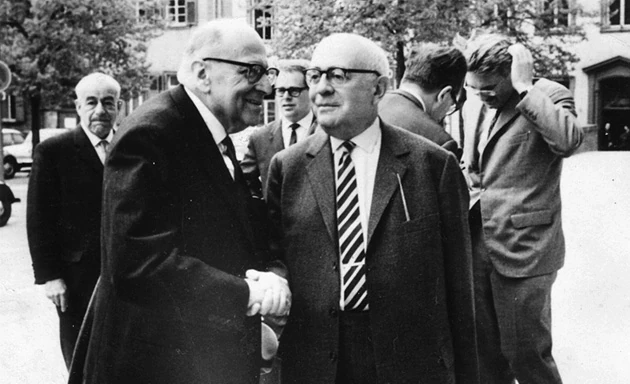The idea of culture industry was first introduced by Theodor W. Adorno in the early 1940s. Adorno was a member of the influential and prominent Frankfurt School, which was made up of scholarly refugees from Nazi Germany. The concept was introduced in Adorno (1903–1969) and his co-author Max Horkheimer’s (1895–1973) book “Dialectic of Enlightenment” (1944), specifically in the chapter “The Culture Industry: Enlightenment as Mass Deception.” Adorno replaced the term “mass culture” with “culture industry” (in singular form) to convey an idea that mass culture is produced for the masses rather than coming from the masses (Moore, 2014). In this chapter, Adorno mentioned that “certain reproduction processes are necessary that inevitably require identical needs in innumerable places to be satisfied with identical goods” (Adorno&Horkheimer, 1972). In addition, standards of the culture industry “were based in the first place on consumers’ needs, and for that reason were accepted with so little resistance” (Adorno&Horkheimer, 1972). He considered film, radio and magazines just business that “is made into an ideology in order to justify the rubbish they deliberately produce” rather than art(Adorno&Horkheimer, 1972). This implies a mass production model where standardized products are created to appeal to the largest audience possible. Products under the culture industry look similar and formulaic. They have similar contents and similar structures, but convey in different ways and by different techniques.

One notable example is superhero movies. Superhero movies often have a formula with common elements such as origin stories, battle between hero and villain, hero’s journey etc.. The journey always starts from the hero being nobody/weak/down-and-out. Then, the hero will be stronger after practices/being tutored by a master or expert/gain superpower. But he/she is not able to fight the villain yet. It is always a failure when he/she first fights with the bad guy. There is always another process of growing and being a real hero that can fight hundreds of bad guys at one time. Also, in this formula, there is always a predictable conflict, where the hero aims to be a saviour, whether saving people, saving countries or saving the world.

The Spider-Man collection by Marvel Studios is one of the examples of a typical superhero movie. At the beginning of the story, Peter is just a normal high school student, living a normal life with his Aunt May and Uncle Ben. One day, he got bitten by a radioactive spider. He gains superpowers. But he tries so hard to control his power. He has been struggling and anxious about his power before he becomes a respected crime-fighter.

It is understandable that superhero movies are popular, and are produced and spreaded widely. Because it is based on consumers’ needs. How’s that? First, a strong and powerful figure can provide security to the audience and make them feel like they are being protected. Second, the tough journeys and experience of superheroes and their success after difficulties can encourage the audience to be strong and to live their lives positively. In addition, the audience might have fantasies of themselves being superheroes, and have superpowers of solving every problem which is impossible to achieve in real life.

In my opinion, superhero movies and other formulaic content produced in the background of the culture industry are attractive indeed. But too many similar contents are just aesthetically tiring and exhausting. Gradually, the producers might lose the ability to create, and the audience(or we) might lose the ability to “taste” a good movie or a magnificent piece of artwork.
Reference:
Adorno, T. W., & Horkheimer, M. (1972). The culture industry. na.
chuzzete ed., (2015). Jesus Mendez. Available at: https://www.jesusmendez.ca/play-the-role-of-superhero-that-you-have-inside-i-protecting-the-product-owner/ [Accessed 22 Oct. 2023].
Lalisy ed., (n.d.). Early Modern Europe Wiki. Available at: https://earlymoderneurope.fandom.com/wiki/Horkheimer_and_Adorno,_Dialectic_of_Enlightenment [Accessed 22 Oct. 2023].
Leadbetter, R. ed., (2022). Eurogamer. Available at: https://www.eurogamer.net/digitalfoundry-2022-marvels-spider-man-pc-why-we-arent-posting-our-review-today [Accessed 22 Oct. 2023].
Moore, I. (2014). Cultural and Creative Industries Concept – A Historical Perspective. Procedia – Social and Behavioral Sciences, 110(1877-0428), 738–746. https://doi.org/10.1016/j.sbspro.2013.12.918
Roembke, M. ed., (2022). The Direct. Available at: https://thedirect.com/article/superhero-movies-2023-releases-ranked-excitement [Accessed 22 Oct. 2023].

I think it’s cool to be able to embody the cultural industry to heroism, and suddenly I realized that this is the cultural industry around us, and found that heroism has been expanding with the release of movies and other releases over the years.